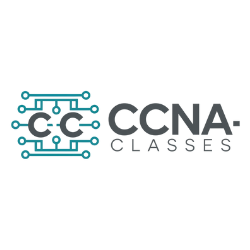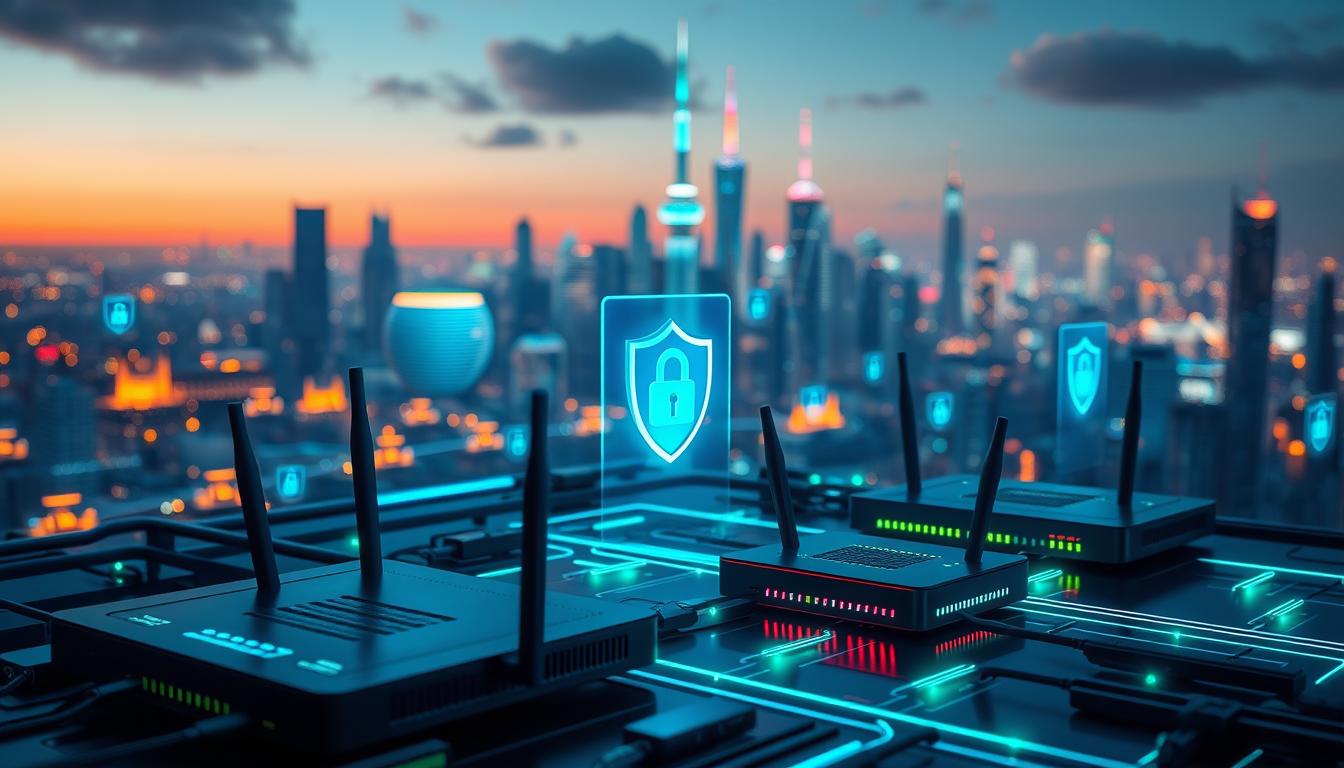Are you aspiring to become a CCNA certified professional? If so, you’re in the right place! In this article, I’ll be sharing the study habits of successful CCNA candidates that can help you ace your certification exam. As someone who has been through the CCNA journey myself, I understand the importance of effective study habits in achieving your goals.
When it comes to preparing for the CCNA exam, it’s not just about putting in hours of study time. It’s about studying smart and utilizing strategies that work. In this article, I’ll be sharing the tried and tested study habits that successful CCNA candidates swear by. From creating a study schedule to practicing hands-on labs, these habits will set you on the path to success.
Creating a Study Schedule
When it comes to preparing for the CCNA exam, having a well-structured study schedule can make all the difference. A study schedule helps me stay organized and ensures that I allocate sufficient time to cover all the necessary topics. Here are some tips I’ve found helpful for creating a study schedule that maximizes your chances of success:
- Set realistic goals: Start by identifying your target exam date and work backward to determine how much time you have for preparation. Break down the topics into manageable chunks and assign specific time slots for each one. Be realistic about how much you can accomplish in a day to avoid overwhelming yourself.
- Prioritize the topics: It’s essential to prioritize the topics based on their weightage in the exam and your own proficiency. Focus more on areas where you feel weaker, as these are the ones that will require extra attention. By prioritizing your study sessions, you can ensure that you spend your time wisely and cover all the important areas.
- Dedicate regular study blocks: Consistency is key when it comes to studying for the CCNA exam. I find it helpful to allocate regular study blocks throughout the week, rather than cramming all the studying into a single day. By spacing out your study sessions, you give yourself time to absorb the information and reinforce your understanding.
- Mix up study methods: To keep things interesting and enhance retention, I recommend varying your study methods. Use a combination of textbooks, online resources, videos, and practice exams to reinforce your knowledge. Additionally, taking regular breaks during study sessions can help prevent burnout and improve focus.
- Track your progress: Keep a log of your study hours and the topics you’ve covered. Not only does this help you stay accountable, but it also allows you to track your progress and identify areas where you might need more practice. Celebrate small victories along the way, as this will keep you motivated and engaged in your study routine.
Remember, creating a study schedule is just one part of the equation. It’s equally important to stick to the schedule and remain disciplined throughout your preparation. With a well-structured study schedule in place, you can approach the CCNA exam with confidence and increase your chances of success.
Now that we have covered the importance of creating a study schedule, let’s move on to another effective study habit: practicing hands-on labs.
Setting Clear Goals
When preparing for the CCNA certification exam, one of the most important study habits you can cultivate is setting clear goals. Having a clear understanding of what you want to achieve will not only keep you motivated but also help you focus your efforts in the right direction. Here’s how you can set clear goals to boost your study effectiveness:
- Be specific: One of the key aspects of setting clear goals is being specific about what you want to achieve. Instead of saying “I want to pass the CCNA exam,” set specific goals like “I want to achieve a score of 90% on the CCNA exam.” This level of specificity makes your goals more actionable and measurable.
- Break it down: The CCNA exam covers a wide range of topics, and trying to tackle all of them at once can be overwhelming. Break down your overall goal into smaller, manageable chunks. For example, you could set goals to study and master one topic or concept at a time.
- Set deadlines: Deadlines create a sense of urgency and help you stay on track with your studying. Assign deadlines to each of your goals, whether it’s completing a certain number of practice questions or finishing a particular chapter in a study guide. Just remember to be realistic with your deadlines to avoid setting yourself up for failure.
- Monitor progress: Regularly track your progress towards your goals. This will not only give you a sense of accomplishment but also help you identify areas where you might need to put in more effort. Use tools like study planners or progress trackers to keep a record of your study sessions and the topics you’ve covered.
- Adjust as needed: As you move along your study journey, you may realize that certain goals need to be adjusted or modified. Don’t be afraid to revisit your goals and make necessary changes. The key is to be flexible and adaptable to ensure you’re continuously making progress towards your ultimate goal of passing the CCNA exam.
Setting clear goals is an effective study habit that can significantly enhance your preparation for the CCNA exam. By being specific, breaking down your goals, setting deadlines, monitoring progress, and adjusting as needed, you’ll stay focused, motivated, and on track to achieve success. So, take the time to define your goals and set yourself up for a productive and effective study journey.
Utilizing Effective Study Techniques
When it comes to preparing for the CCNA exam, it’s not just about studying hard; it’s also about studying smart. In this section, I’ll share some effective study techniques that successful CCNA candidates utilize to enhance their preparation for the exam.
- Active Learning: One of the most effective study techniques is to actively engage with the material rather than passively reading or memorizing it. Instead of just reading the textbook or watching videos, try to summarize the information in your own words or teach it to someone else. This will help reinforce your understanding and retention of the material.
- Flashcards: Flashcards are a great tool for memorizing key concepts, definitions, and commands. Create flashcards for important terms and review them regularly. You can also use digital flashcard apps that allow you to study on the go.
- Practice Tests: Taking practice tests is an essential part of exam preparation. It not only helps you assess your knowledge and identify areas of weakness but also familiarizes you with the exam format and timing. Look for reputable practice test providers or use online resources to access practice exams.
- Group Study: Studying with a group of like-minded individuals can be highly beneficial. It allows for the sharing of ideas, insights, and different perspectives on challenging topics. You can discuss difficult concepts, quiz each other, and learn from one another’s strengths.
- Time Management Techniques: Effective time management is crucial when preparing for the CCNA exam. Utilize techniques such as the Pomodoro Technique, where you study for a set amount of time (e.g., 25 minutes) and take short breaks in between. This helps improve focus and prevents burnout.
Remember, everyone has different learning styles and preferences, so it’s important to experiment with different techniques and find what works best for you. The key is to be consistent, disciplined, and dedicated to your study routine.
Keep in mind that while these techniques are highly effective, they may not guarantee success on their own. It’s important to complement your study efforts with hands-on practice, seeking clarification when needed, and staying up to date with industry trends and developments.
In the next section, I’ll introduce another study habit that can give you an edge in your CCNA exam preparation: staying organized and managing your study materials effectively.
Practicing Hands-On Labs
One of the most effective study habits for successful CCNA candidates is Practicing Hands-On Labs. It’s not enough to just learn the theoretical aspects of networking; you must also gain practical experience to truly understand and apply the concepts.
By working with real equipment or using simulation tools, you can create a simulated network environment and practice configuring routers, switches, and other networking devices. This hands-on experience helps to reinforce your understanding of networking concepts and strengthens your problem-solving skills.
Here are a few reasons why practicing hands-on labs is crucial for CCNA exam preparation:
- Application of Theoretical Knowledge: Hands-on labs provide you with an opportunity to apply the theoretical knowledge you have gained from studying. By actually configuring devices and troubleshooting problems, you can solidify your understanding and build confidence in your abilities.
- Real-World Experience: The CCNA certification is designed to prepare you for real-world networking scenarios. By practicing hands-on labs, you can gain valuable experience in working with networking equipment, which is highly beneficial for your future career in networking.
- Troubleshooting Skills: Networking issues can be complex and require a strong troubleshooting mindset. Hands-on labs give you the opportunity to encounter and resolve various network configurations and problems, which helps you develop critical troubleshooting skills.
- Staying Up to Date: Technology is constantly evolving, and staying up to date with the latest industry trends and advancements is essential for CCNA candidates. When you practice hands-on labs, you can experiment with new technologies and explore different network configurations, keeping yourself informed and prepared for any future changes.
Remember, everyone’s study habits may vary, so it’s important to find what works best for you. However, integrating hands-on practice into your study routine is a proven strategy for success in the CCNA certification journey.
In the next section, I’ll discuss the importance of staying organized and managing study materials effectively.
Taking Regular Breaks
When it comes to studying for the CCNA exam, the importance of taking regular breaks cannot be stressed enough. Many people have the misconception that studying for long hours without breaks is the key to success. However, this approach can actually be counterproductive.
Here’s why taking regular breaks is essential for effective studying:
- Improved Focus: Our brains are not designed to maintain a high level of concentration for extended periods of time. Taking short breaks enables us to recharge and refocus, leading to increased productivity when we return to our study materials.
- Enhanced Retention: Research shows that regular breaks can improve our ability to retain information. When we take breaks, our brain has the opportunity to consolidate what we’ve learned, making it easier to recall later on.
- Reduced Mental Fatigue: Long study sessions can lead to mental fatigue, which can negatively impact our ability to learn and retain information. Taking breaks allows our brains to rest and recharge, helping us stay alert and engaged throughout our study sessions.
- Maintained Motivation: Continuous studying can lead to burnout and a loss of motivation. Taking breaks gives us a chance to recharge and maintain our enthusiasm for learning, making our study sessions more enjoyable and effective.
Now that we understand the importance of taking regular breaks, it’s crucial to know how to incorporate them effectively into our study routine. Here are a few tips to help you make the most out of your study breaks:
- Set a Timer: Use a timer to remind yourself to take regular breaks. This will help you establish a study schedule that includes dedicated break times.
- Engage in Physical Activity: During your breaks, get up and move around. Engaging in light physical activity, such as stretching or going for a short walk, can help refresh your mind and improve blood circulation.
- Avoid Screens: Instead of scrolling through social media or watching videos during your breaks, try doing something that doesn’t involve a screen. Reading a book or chatting with a friend can be great alternatives.
- Stay Hydrated and Snack Smart: Use your breaks to hydrate yourself and have a healthy snack. Proper hydration and nutrition can improve cognitive function and help you stay focused.
Conclusion
Successful CCNA candidates understand the importance of studying smart and implementing effective strategies. By creating a well-structured study schedule, setting realistic goals, and prioritizing topics, they ensure focused and efficient learning. Regular study blocks and a mix of study methods help them stay engaged and retain information effectively. Tracking progress allows them to stay on top of their learning journey.
One key study habit that successful CCNA candidates adopt is practicing hands-on labs. This hands-on approach allows them to apply theoretical knowledge, gain real-world experience, and develop troubleshooting skills. It keeps them updated with industry trends and prepares them for practical scenarios they may encounter in their careers.
Taking regular breaks is another crucial study habit that helps maintain focus, enhance retention, reduce mental fatigue, and sustain motivation. Incorporating breaks into a study routine by setting timers, engaging in physical activity, avoiding screens, and staying hydrated and snacking smart can significantly improve overall productivity.
Aspiring CCNA professionals can greatly benefit from adopting these study habits of successful candidates. By studying smart, practicing hands-on labs, and taking regular breaks, they can enhance their learning experience and increase their chances of success in the CCNA certification exam.





